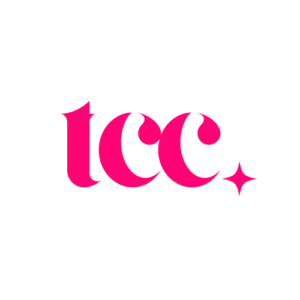Welcome to the Future of Work: Hybrid, Remote, and Everything In Between
There was a time when work meant suiting up, braving the morning commute, and clocking in at an office desk. Fast forward to now, and the idea of a traditional 9-to-5 feels almost quaint. The pandemic didn’t just disrupt our lives—it flipped the entire work culture on its head. For us Zillennials, this shift has been both liberating and complex. Work-from-home (WFH), hybrid models, and remote job opportunities have redefined what “work” looks like, and we’re rewriting the rulebook on career choices, further studies, and life plans.

The Work-from-Home Revolution: Trading Office Desks for Dining Tables
In 2020, WFH went from a rare perk to the new normal almost overnight. Suddenly, office meetings were conducted over Zoom, and “Can you see my screen?” became the most spoken phrase of the year. For Zillennials, this wasn’t just about staying safe during a global crisis—it was a fundamental shift in how we approached our careers.
The Pros: No more long commutes, flexible schedules, and the comfort of working in sweatpants. Many of us discovered that our productivity didn’t suffer outside of the office environment—in fact, for some, it improved.
The Cons: On the flip side, we also felt the weight of blurred boundaries between work and personal life. Days melted into each other, and the concept of “logging off” became hazy. Mental health took a hit as we struggled to find balance in a world where our homes became our offices.
Hybrid Work: The Best of Both Worlds or a Compromise?
Hybrid work models are a happy medium, allowing employees to split their time between the office and home. For Zillennials, who appreciate flexibility but also miss the social aspects of office life, this model feels like a sweet spot—at least in theory.
The Flex Appeal: Hybrid work offers the best of both worlds: the chance to collaborate in person when needed and the flexibility to work from home. It’s the ideal setup for those of us who crave variety and thrive in changing environments.
The Reality Check: But hybrid isn’t without its downsides. Coordinating office days, managing in-person and remote communication, and dealing with the FOMO of missing out on those spontaneous office moments can be challenging. The balance isn’t always easy to strike, especially when companies have different expectations about “face time” versus productivity.

Remote Opportunities: A World of Possibilities at Your Fingertips
Remote work has demolished geographical boundaries, making it possible to land a dream job without relocating to a big city. Whether it’s freelancing, consulting, or working full-time for companies across the globe, remote work has opened up career paths that were once unimaginable.
Expanding Horizons: For many Zillennials, this shift has been empowering. We’re no longer tied to one location or confined to the industries within our city limits. The world is literally our oyster, and job opportunities have expanded beyond borders.
Career Pivots: The surge in remote work has also made career pivots easier. It’s less daunting to switch fields when you can learn new skills online and apply them to remote gigs without uprooting your life. This has influenced how many of us view our long-term career plans and even decisions about further education.
Rethinking Further Studies: The Rise of Online Learning and Upskilling
With the rise of remote work, our approach to education has also evolved. The pandemic forced universities to go online, and what started as a temporary measure has paved the way for a permanent shift in how we view further studies.
Beyond Traditional Degrees: Zillennials are increasingly turning to online courses, certifications, and boot camps to upskill without committing to full-time degrees. It’s all about quick, targeted learning that matches the fast-paced changes of the job market.
Balancing Work and Study: The flexibility of remote work has made it easier to juggle job responsibilities with further studies. You can work during the day and attend classes at night, or even integrate learning into your daily routine.

Burnout in the Digital Age: Balancing Productivity and Wellbeing
As work-life boundaries blur, many Zillennials are grappling with burnout. The constant connectivity of remote and hybrid work means it’s harder than ever to disconnect. We’re redefining self-care, setting boundaries, and prioritizing mental health like never before.
Setting Boundaries: It’s about knowing when to log off, learning to say no, and creating a workspace that feels separate from your relaxation zones. For Zillennials, this often means actively creating routines and setting digital boundaries to protect our mental well-being.
The Great Resignation: Burnout has also led to what’s been dubbed the “Great Resignation,” where many are leaving traditional roles in search of more fulfilling, flexible opportunities that align better with their values and lifestyle choices.

Redefining Success: The New Metrics of Career Fulfillment
Success for Zillennials isn’t just about climbing the corporate ladder—it’s about finding purpose, flexibility, and a balance between work and life that feels right. We’re pushing back against the hustle culture of previous generations, favoring a more holistic approach to career satisfaction.
Purpose Over Paychecks: We’re looking for jobs that align with our values, companies that prioritize work-life balance, and roles that offer growth without compromising our personal time. Remote and hybrid models are key players in this evolving definition of what makes a fulfilling career.
Wrapping It Up
Success for Zillennials isn’t just about climbing the corporate ladder—it’s about finding purpose, flexibility, and a balance between work and life that feels right. We’re pushing back against the hustle culture of previous generations, favoring a more holistic approach to career satisfaction.



 The Zillennial way
The Zillennial way